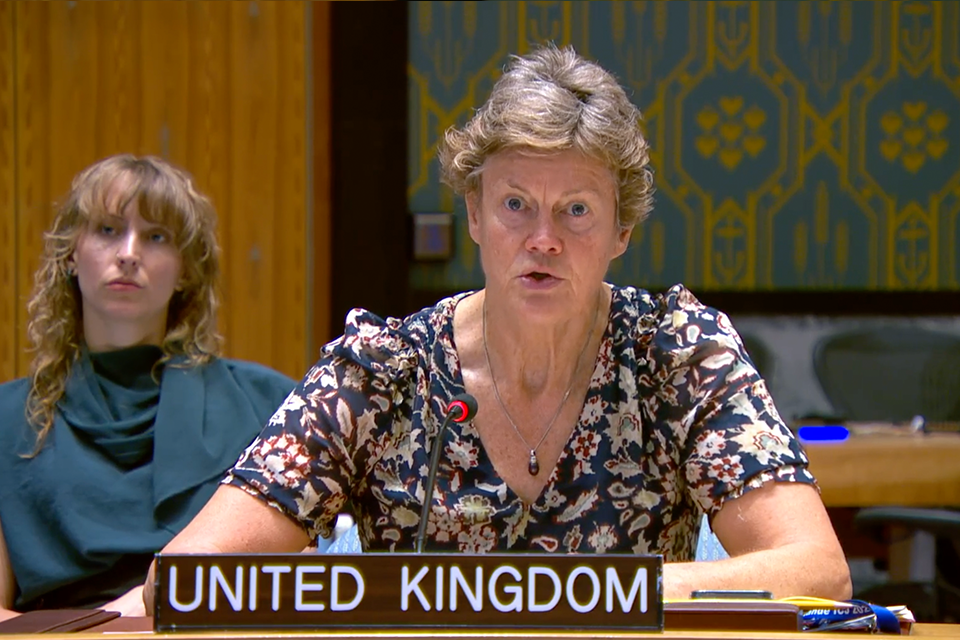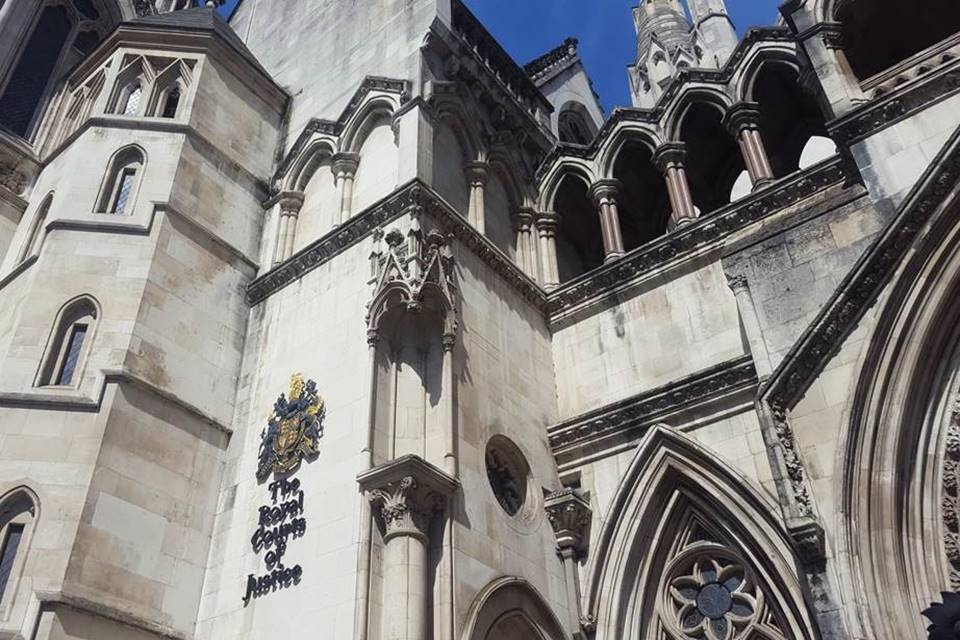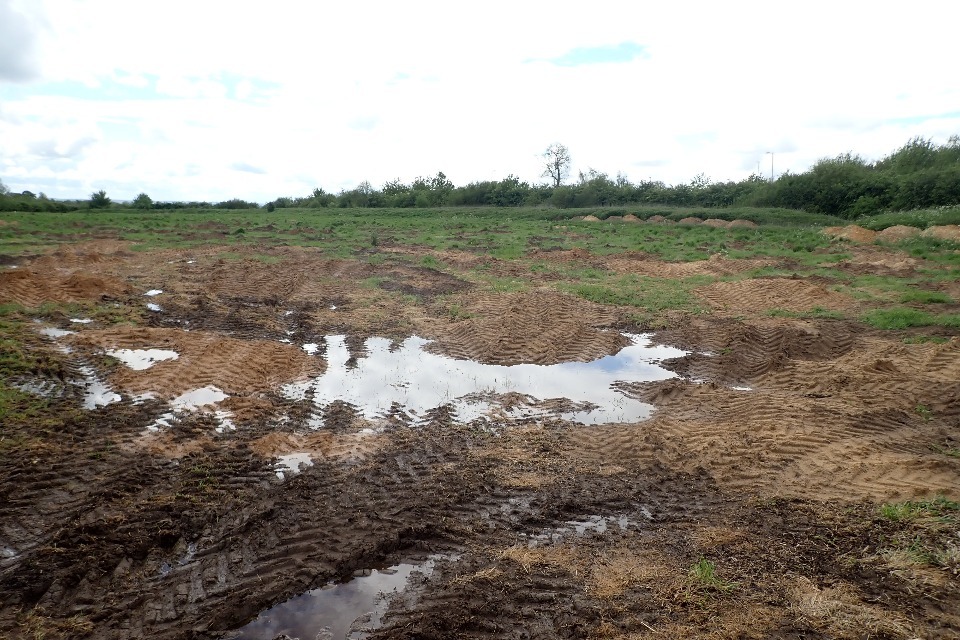Thank you, Chair. I will deliver an abridged version of this statement this afternoon. The full statement will be circulated in writing and I request that it be attached to the Journal of the Day.
I am delivering this statement on behalf of the following participating States Albania, Andorra, Austria, Belgium, Bosnia and Herzegovina, Bulgaria, Canada, Croatia, Cyprus, Czechia, Denmark, Estonia, Finland, France, Georgia, Germany, Greece, Iceland, Ireland, Italy, Latvia, Liechtenstein, Lithuania, Luxembourg, Malta, Moldova, Monaco, Montenegro, Netherlands, North Macedonia, Norway, Poland, Portugal, Romania, San Marino, Slovakia, Slovenia, Spain, Sweden, Switzerland and the United Kingdom.
Today, our delegations will send the following letter to ODIHR Director Maria Telalian, invoking the Moscow Mechanism, with the support of Ukraine, as we continue to have concerns regarding violations of international humanitarian law and international human rights law following Russia’s full-scale war of aggression against Ukraine, including with regard to ill treatment of Ukrainian Prisoners of War (POW).
Director Telalian,
With Russia’s war of aggression against Ukraine in its fourth year and as Russia’s illegal occupation of the Autonomous Republic of Crimea and the city of Sevastopol and certain areas of the Donetsk and Luhansk regions of Ukraine has entered its eleventh year, we continue to witness large scale human suffering and alarming reports of violations of international humanitarian law (IHL) and of international human rights law (IHRL), many of which may amount to the most serious international crimes.
Against the backdrop of the full-scale war of aggression against Ukraine, launched by the Russian Federation on February 24, 2022, a number of credible sources, including the Moscow Mechanism expert missions, the Office for Democratic Institutions and Human Rights, the Office of the High Commissioner for Human Rights and the UN Independent International Commission of Inquiry, as well as civil society organizations, have reported that the Russian Federation has consistently violated the rights of prisoners of war (POWs) throughout their detention and at multiple detention facilities within the temporarily occupied territories of Ukraine and the Russian Federation. There have been credible reports that the extensive and routine torture and ill-treatment of Ukrainian POWs throughout their detention constitutes a continued systematic pattern of state policy and practice by the Russian Federation. Torture follows common patterns across different locations, indicating it is a coordinated, deliberate, and systematic practice.
In 2022, 2023 and 2024, 45 OSCE Delegations, following bilateral consultations with Ukraine under the Vienna (Human Dimension) Mechanism, invoked Paragraph 8 of the Moscow (Human Dimension) Mechanism. The reports of the independent missions of experts, received by OSCE participating States, confirmed our shared concerns about the impact of the Russian Federation’s invasion and acts of war, its violations and abuses of IHRL, and violations of IHL in Ukraine.
We remain particularly alarmed by the findings of the expert missions that some of the violations may amount to war crimes and crimes against humanity as well as the identification of patterns of reported violations of IHL and IHRL regarding the treatment of prisoners of war.
The prohibition against torture in international law is absolute. Parties to an armed conflict are obliged to ensure the rights of POWs as set out in the Third Geneva Convention of 1949 relative to the Treatment of Prisoners of War and Additional Protocol I to the Geneva Conventions. Prisoners of war must at all times be protected, particularly against acts of violence or intimidation and against insults and public curiosity. No physical or mental torture, nor any other form of coercion, may be inflicted on prisoners of war to secure from them information of any kind whatever. Prisoners of war who refuse to answer may not be threatened, insulted or exposed to unpleasant or disadvantageous treatment of any kin Torture and inhuman treatment of POWs are grave breaches of the Geneva Conventions, and likewise war crimes under the Rome Statute of the International Criminal Court.
ODIHR’s Ukraine Monitoring Initiative has continued to identify patterns of reported IHL and IHRL violations related to the treatment of Ukrainian POWs including in their Sixth Interim Report of 13 December 2024 and their Seventh Interim Report of 15 July 2025. Interviews with survivors and witnesses attested to a continued practice of systematic torture and other IHL and IHRL violations perpetrated against Ukrainian POWs prompting serious concerns about the Russian Federation’s failure to comply with the fundamental principles that govern the treatment of POWs.
In equal measure, the OHCHR and the UN Human Rights Monitoring Mission in Ukraine (HRMMU) have reported on the systematic and widespread use of torture of Ukrainian POWs by Russian authorities. In its March 2023 report, the HRMMU documented violations of IHRL and IHL in 32 of 48 detention facilities in Russia and Russian-occupied territories of Ukraine, related to torture and other ill-treatment, dire conditions of internment including inadequate quarters, food, hygiene, and medical care, along with restricted communication, forced labor, and a lack of access of independent monitors. . Many were held incommunicado deprived of the possibility to communicate with family or the outside world. Russian authorities subjected Ukrainian POWs to unlawful prosecutions for mere participation in hostilities; using torture to extract confessions; and denying fair trials.
According to witness testimonies, there were numerous incidents whereby POWs died in captivity due to execution, torture, ill-treatment and/or inadequate medical attention as well as inhumane conditions during their captivity.
The OHCHR’s October 2024 Report on the Treatment of Prisoners of War further documented detailed and consistent accounts of torture or ill treatment in Russian Federation custody.
Survivors have described the wide-ranging methods of torture or ill-treatment of Ukrainian POWs including severe physical beatings; electrocution (including the targeting of genitalia); excessively intense physical exercise; stress positions; dog attacks; mock executions (including simulated hangings); threats of physical violence and death; sexual violence, including rape; threats of rape and castration; threats of coerced sexual acts; and other forms of humiliation.
Since the end of August 2024, OHCHR also has recorded a significant increase in credible allegations of executions of Ukrainian servicepersons captured by Russian armed forces, involving at least 97 individuals.
The UN Independent International Commission of Inquiry on Ukraine (UN COI) stated on 23 September 2024 that it has evidence of widespread and systematic torture by Russian authorities against Ukrainian civilians and POWs in the temporarily occupied territories and in Russia. They concluded that torture follows common patterns across different locations, indicating it is a coordinated practice. In their March 2025 report, the UN COI again called on the Russian Federation to immediately end the widespread and systematic use of torture and other forms of ill-treatment committed against civilian detainees and prisoners of war
The Office of the Prosecutor General of Ukraine is investigating the reported execution of 273 Ukrainian POWs, including 208 who were reportedly executed on the battlefield and 59 in the ‘‘Olenivka’’ colony. However, the real number of those executed is likely much higher.
We are deeply concerned about the severity and frequency of these violations and abuses. We are particularly appalled by reported executions of Ukrainian POWs and Ukrainian soldiers rendered hors de combat upon their surrender and by the desecration/mutilation of bodies. We are also deeply concerned with the practice of filming and distributing images of these abhorrent incidents.
Following grave concerns over the ill-treatment of Ukrainian POWs, highlighted, inter alia, by the UN Human Rights Monitoring Mission in Ukraine, the Independent International Commission of Inquiry on Ukraine and the Office of the High Commissioner for Human Rights and the OSCE, we call on all parties to the armed conflict ensure that POWs are treated in full compliance with IHL.
We recall that OSCE participating States have committed themselves to respect IHL, including the Third Geneva Convention relative to the Treatment of Prisoners of War of 1949, bearing in mind that the willful killing, torture, inhuman treatment, causing great suffering, or serious injury to body or health of persons protected under the Geneva Conventions, including prisoners of war, constitutes a war crime. No prisoner of war may be subjected to physical mutilation or to medical or scientific experiments of any kind which are not justified by the medical, dental or hospital treatment of the prisoner concerned and carried out in his interest. Likewise, prisoners of war must at all times be protected, particularly against acts of violence or intimidation and against insults and public curiosity.
We also recall that the prohibition of torture is a peremptory norm of international law without territorial limitation, which applies at all times and in all places. Measures of reprisal against POWs are prohibited.
We call on the Russia Federation to end the torture and ill-treatment of all detainees and ensure adequate conditions of detention including the provision of basic needs such as food, water, clothing, and medical care. We further call for providing timely and accurate information on detainees’ whereabouts and legal status, and for granting international humanitarian organizations, like the International Committee of the Red Cross, unfettered access to such persons.
Gravely concerned by the continuing impacts of Russia’s ongoing aggression against Ukraine, and gravely concerned by credible allegations of the torture, ill-treatment and executions of Ukrainian POWs, and soldiers hors de combat, the delegations of Albania, Andorra, Austria, Belgium, Bosnia and Herzegovina, Bulgaria, Canada, Croatia, Cyprus, Czechia, Denmark, Estonia, Finland, France, Georgia, Germany, Greece, Iceland, Ireland, Italy, Latvia, Liechtenstein, Lithuania, Luxembourg, Malta, Moldova, Monaco, Montenegro, Netherlands, North Macedonia, Norway, Poland, Portugal, Romania, San Marino, Slovakia, Slovenia, Spain, Sweden, Switzerland and the United Kingdom, following bilateral consultations with Ukraine under the Vienna Mechanism, invoke the Moscow (Human Dimension) Mechanism under Paragraph 8 of that document.
We request that ODIHR inquire of Ukraine whether it would invite a mission of experts to build upon previous findings, and
To establish the facts and circumstances surrounding possible contraventions of relevant OSCE commitments; violations and abuses of human rights; and violations of IHL, including possible cases of war crimes and crimes against humanity, related to the treatment of Ukrainian POWs by the Russian Federation ;
To collect, consolidate, and analyse this information including to determine if there is a pattern of widespread and systematic torture, ill-treatment and execution of Ukrainian POWs and soldiers hors de combat and/or at detention facilities by the Russian Federation in the temporarily occupied territories and in Russia and
To offer recommendations on relevant accountability mechanisms.
We also invite ODIHR to provide any relevant information or documentation derived from any new expert mission to other appropriate accountability mechanisms, including the UN Human Rights Monitoring Mission in Ukraine or the Independent International Commission of Inquiry on Ukraine, as well as national, regional, or international courts or tribunals that have, or may in future have, jurisdiction.
Thank you for your attention.







